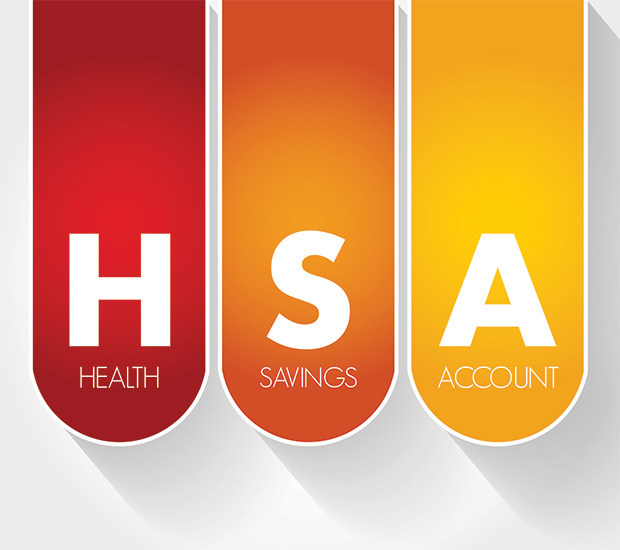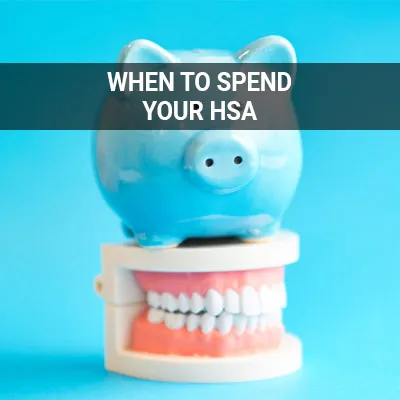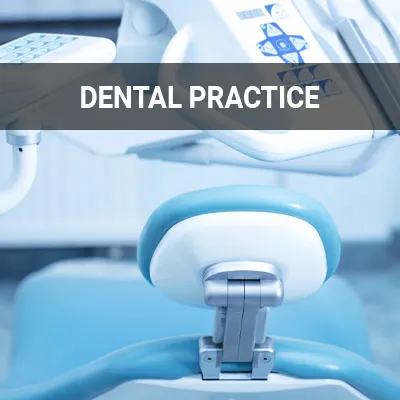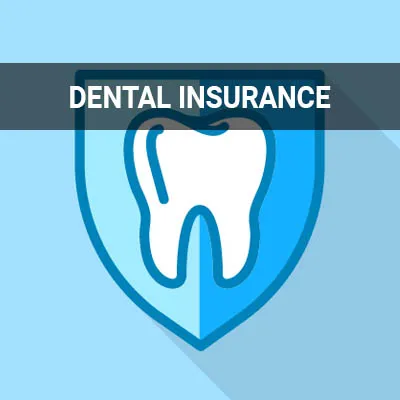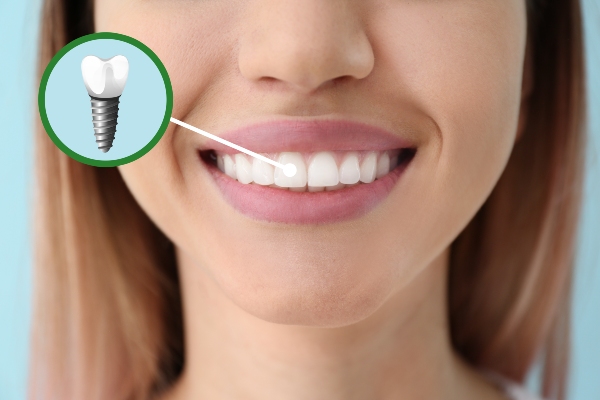Health Care Savings Account Los Angeles, CA
A health care savings account, or HSA, is a type of savings account that allows you to put away money for qualified medical expenses on a pre-tax basis. Since HSA funds are untaxed, you may often be able to lower your overall healthcare costs. HSAs are popularly used to pay for coinsurance, copayments, deductibles, and other expenses. However, they usually cannot be used to pay premiums.
We accept HSAs at Dr. Robert B Tamaki, DDS in Los Angeles and the surrounding area. Call us today at (310) 402-0156 to schedule an appointment or learn more about our services.
Understanding Health Care Savings Accounts
A health savings account (HSA) is a savings account that lets people set aside money on a pre-tax basis to pay for qualified medical expenses. An HSA is complementary to a health care plan that has a high deductible. People can save money in an HSA before taxes and use the funds to pay for eligible health care expenses, including expenses the health plan does not cover. For example, people can use their HSA savings to cover health care costs until reaching the plan's deductible.
People can use their HSA funds to pay the copayment until reaching the out-of-pocket limit. Taxes do not apply to the money put into an HSA. Patients can invest a portion of the money in an HSA if maintaining a balance of $1,000 or more. For this reason, many people use part of their HSA to save for retirement.
“A health savings account (HSA) is a savings account that lets people set aside money on a pre-tax basis to pay for qualified medical expenses.”
Pros and Cons of an HSA
According to Investopedia, there are several advantages to an HSA. For one thing, it covers a wide variety of expenses, including dental, medical, and mental health services. Contributions can also come from multiple people, including the enrollee, their employer, a relative, or anyone else who wants to contribute. Most commonly, however, contributions are made with pre-tax funds through an employer. Contributions that are made with after-tax dollars can also be deducted from one's gross income.
Of course, HSAs come with their own set of disadvantages as well. For instance, they are only available to people covered under an HDHP, which can be more financially burdensome than other types of health insurance. They may also place enrollees under pressure to save instead of using the money. Furthermore, using HSA funds for non-qualified funds before turning 65 will result in an income tax as well as a 20% penalty. Enrollees must also keep receipts to prove that their withdrawals were healthcare-related in case of an audit.
“Contributions that are made with after-tax dollars can also be deducted from one’s gross income.”
Financial Benefits of an HSA
An HSA not only helps save on health care expenses but comes with tax advantages. One advantage is that people do not have to pay taxes on contributions to their HSA. If a person adds money to their HSA through their employer, the funds are taken before taxes, lowering taxable income. People who add money to their accounts personally will have deductions from their gross income when filing income taxes at the end of the year.
Anything earned on the investment of funds also remains tax-free. If using the withdrawals to pay for qualified medical expenses, no taxes and penalty fees apply. Funds withdrawn for medical expenses are not taxed. At age 65, HSA funds are available for use without penalty. After this age, people can use their HSA savings as retirement money and withdraw funds from an HSA without incurring tax penalties, even if used for non-medical expenses. However, the money would still be subject to income tax.
“An HSA not only helps save on health care expenses but comes with tax advantages.”
Check out what others are saying about our dental services on Yelp: Health Care Savings Account in Los Angeles, CA
HSAs and Dental Services
While HSAs do not typically cover cosmetic dental services, they do cover routine procedures, such as checkups and cleanings. HSAs also tend to cover any dental procedures deemed medically necessary, including various preventative and diagnostic procedures. Common examples include bonding, crowns, dentures, extractions, fillings, and root canals.
However, patients may need to pay a copay, even with an HSA on their side. As such, it is best practice for enrollees to contact their employer and insurer with any questions or concerns they may have about their plan.
“While HSAs do not typically cover cosmetic dental services, they do cover routine procedures, such as checkups and cleanings.”
Questions Answered on This Page
Q. What is a health savings account?
Q. What are the tax benefits to having an HSA?
Q. What dental treatments does an HSA cover?
Q. What are some of the pros and cons of an HSA?
Q. Do HSAs cover dental services?
People Also Ask
Q. Is dental insurance worth it?
Q. Who is the billing specialist?
Q. Why is preventative care important? How can it save you money?
Q. Why is it important to find the right general dentist?
Treatments Covered by an HSA
Dental services and HSA eligibility can vary; however, some common and necessary dental procedures are eligible. HSAs cover treatments that diagnose, treat, mitigate, cure, and prevent disease. HSAs cover most dental treatments deemed medically necessary, such as:
- Regular cleanings and routine visits
- Fillings
- Root canals
- Extractions
- Crowns
- Dentures and bonding
Even with an HSA, there may be a copayment for the patient. HSAs do not cover cosmetic dental treatments such as teeth whitening or regular dental expenses, such as toothpaste, toothbrushes, dental floss, and mouthwash.
“HSAs cover treatments that diagnose, treat, mitigate, cure, and prevent disease.”
Frequently Asked Questions
Q. Can I use my HSA funds on non-medical-related expenses?
A. Yes. However, using your HSA funds on non-eligible expenses will require you to be taxed on said expenses, as the initial contributions went tax-free. You may also face a 20% tax penalty if you are under the age of 65.
Q. Can I have more than one HSA?
A. Yes. Though you cannot have an HSA in conjunction with an FSA or HRA, you can open as many HSA accounts as you want. However, annual IRS contribution limits may still apply.
Q. What is the monthly or annual fee for an HSA?
A. The monthly fee for an HSA tends to be less than $5 a month, or around $30 a year. However, many HSAs do not require monthly payments, and others may waive or reduce these fees if enrollees maintain a minimum balance.
Q. What is the difference between an FSA and an HSA?
A. FSA funds are available on a "use-it-or-lose-it" basis, while HSA funds carry over from year to year. HSA funds are also entirely in the enrollee's control, meaning they stay with the enrollee even when they change jobs or move to a different state.
Q. What happens to my HSA when I change health insurance policies?
A. Since your HSA funds are entirely yours, your HSA will remain unchanged even if you change your health insurance plan. However, you will only be eligible to make future contributions to your HSA if you choose a qualifying plan.
Dental Terminology
Call Us Today
HSA can help you lower the costs of dental treatment. Our team at Dr. Robert B Tamaki, DDS can help. Call us today at 310-402-0156 to learn more about our services or schedule an appointment.
Helpful Related Links
- American Dental Association (ADA). Glossary of Dental Clinical Terms. 2024
- American Academy of Cosmetic Dentistry® (AACD). Home Page. 2024
- WebMD. WebMD’s Oral Care Guide. 2024
About our business, license, and website security
- Dr. Robert B Tamaki, DDS was established in 1985.
- We accept the following payment methods: Cash, CareCredit, Check, MasterCard, and Visa
- We serve patients from the following counties: Los Angeles County
- We serve patients from the following cities: Los Angeles, Santa Monica, Venice, Marina Del Rey, Redondo Beach, Hermosa Beach, Manhattan Beach, and Westchester
- CA (License #DDO-33386). View License Information and Specifics
- National Provider Identifier Database (1568559011). View NPI Registry Information
- Healthgrades. View Background Information and Reviews
- Norton Safe Web. View Details
- Trend Micro Site Safety Center. View Details
Back to top of Health Care Savings Account
